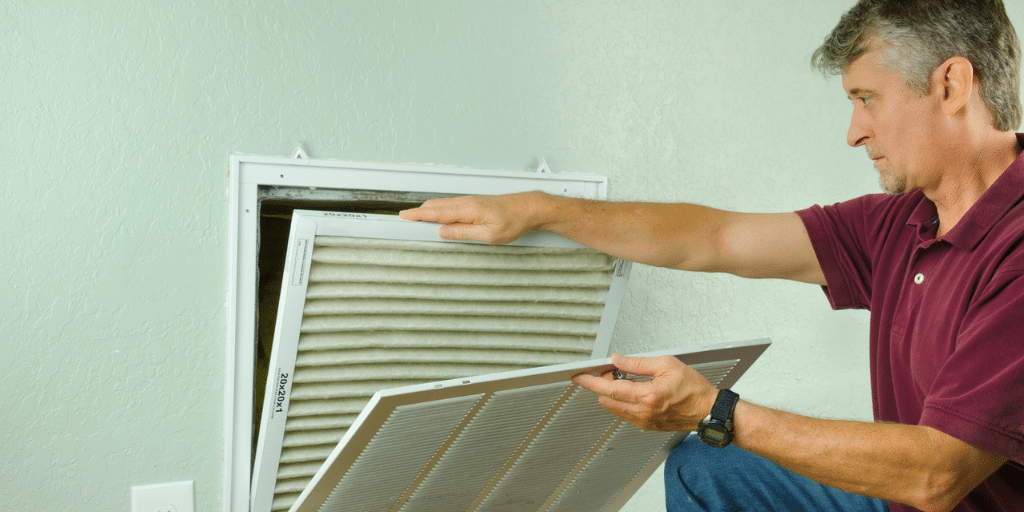The air filter operates silently and mostly unnoticed within the intricate maze of the heating, ventilation, and air conditioning (HVAC) system. Yet, it is integral to ensuring a home’s comfort, health, and financial efficiency. The influence of this humble component extends far beyond its physical dimensions, offering a host of benefits that directly impact occupants’ well-being and the household budget.
The Silent Guardian: Air Filters in the HVAC System
Air filters are constantly at work, diligently capturing and retaining a variety of airborne particulates, including dust, pollen, and mold spores. Acting as the primary defense, these filters ensure that the air circulating throughout your home is purified and essentially free from allergens and pollutants.
But the scope of air filters extends beyond safeguarding air quality. They serve as protective barriers for the HVAC system, deterring particles from infiltrating and damaging the unit’s intricate internal components, thereby safeguarding its efficiency and lifespan.
The Ripple Effect: Economic Benefits of Air Filters
Contrastingly, a dirty, congested filter puts an excessive load on the system, compelling it to work harder than necessary. This inflates energy costs and induces stress on the unit that could lead to costly repairs or even demand an early system replacement.
Understanding the Ideal Frequency for Air Filter Replacement
The inevitable question arises: how often should you change your air filters? The answer can vary based on several considerations, including the filter type, the ambient air quality, and even the presence of pets. A widely accepted guideline is to aim for a replacement every 90 days. However, for households with pets or occupants with allergies, a more frequent change every 60 or even 30 days may prove beneficial.
During peak pollen seasons or in areas prone to wildfires, such as some regions of California, more frequent filter changes may be advisable. Being proactive and preventive is always the best approach when maintaining indoor air quality.
Ignoring Air Filter Changes: Playing with Fire
Overlooking regular air filter changes can trigger a snowball effect of adverse consequences. Beyond escalated energy bills and potential repair expenses, the gravest danger lies in the degradation of indoor air quality.
A filter burdened with dust and allergens becomes ineffective at trapping new particles, leading to a proliferation of pollutants within your home. The Environmental Protection Agency (EPA) warns that this could exacerbate allergies, asthma, and other respiratory conditions.
Furthermore, the additional load on the HVAC system caused by clogged filters can induce overheating and precipitate system breakdowns. What starts as a simple oversight can rapidly escalate into a substantial issue requiring a considerable financial outlay.
The Invisible Threat: Indoor Air Quality and Health Implications
Neglecting air filter changes affects the HVAC system’s efficiency and, more crucially, leads to a significant decline in indoor air quality. This is especially significant considering modern lifestyle patterns, which see us spending more and more time indoors.
Poor indoor air quality can manifest in numerous health issues, from triggering allergies and asthma to causing headaches, fatigue, and even long-term respiratory conditions. For those already grappling with respiratory issues, the repercussions could be markedly more severe.
A Word on Asthma and Allergies
Maintaining optimal air quality at home becomes even more critical if you or a family member suffers from asthma or allergies. Regularly replacing your air filters can help control allergens such as dust mites, pet dander, and pollen that could exacerbate these conditions. Ignoring this simple preventative measure can lead to declining quality of life and increased healthcare costs in the long run.
What if You’ve Already Neglected Your Air Filter?
In case of prolonged neglect of your HVAC system’s air filters, it becomes imperative to engage the services of a professional HVAC technician. Over time, dust and debris can accumulate within the system’s internals, impeding efficiency and potentially damaging components.
A local HVAC professional can conduct a comprehensive system check, evaluating aspects like airflow, refrigerant levels, and potential damage to critical parts. Moreover, they can clean system components that may have become dirty due to poor filtration. By scheduling a professional checkup, homeowners can rectify issues before they escalate, ensuring the HVAC system functions optimally and safely.
Ensuring Regular Air Filter Replacements
Given the potential pitfalls, it’s crucial to make air filter changes a non-negotiable part of your routine home maintenance. Consider purchasing replacement filters in advance and storing them for future use. Utilize reminders on your phone or opt for a filter delivery service to ensure you always have a fresh filter at the ready when it’s time for a change.
The importance of regular air filter changes is profound. This seemingly trivial task ensures a comfortable, healthy, and financially efficient home environment. Whether the motivation is energy savings, prolonging the lifespan of the HVAC system, or preserving a healthy indoor air environment, air filter replacements should be a priority in every household’s regular maintenance routine.
